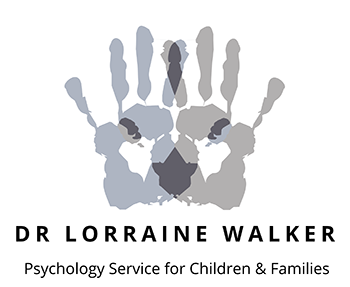Frequently Asked Questions
Please click below for answers to commonly asked questions.
What is a Clinical Psychologist?
Clinical Psychologists help people who experience difficulties with their emotional wellbeing. Our training is comprehensive. We usually undertake a psychology degree, then work as an Assistant Psychologist, before completing Doctorate level training in Clinical Psychology. The doctorate combines academic teaching, supervised clinical practice, private study and research, primarily undertaken within the NHS. We are trained to work across the age range and with clients of all abilities. We are proficient in a range of therapeutic approaches and deliver therapy on an individual basis, within a group setting and indirectly, via professional colleagues. We commit to ongoing supervision and training throughout our careers and do not prescribe medication.
Is therapy confidential?
Conversations in therapy are confidential. At times it can be of benefit to your child’s therapy to seek specific information from, or share specific information with, other professionals involved in their life, such as their GP or Teacher. If I think this would be useful I will seek your consent to do so. There are a small number of additional circumstances under which I would have a duty of care to share information from therapy. If we begin therapy together I will share my Terms & Conditions and Privacy Notice with you which outline how I work in more detail.
Who can attend therapy?
Some parents/carers prefer to attend the first appointment without their child(ren) in order to speak freely or discuss how to talk to the child(ren) about coming to therapy. Others prefer to attend as a family from the outset. I am happy to be guided by you in the first instance. If you parent separately from another parent it is important that both are aware of the child attending therapy. This helps reduce any confusion or conflict and ensures the child is well supported by all. It may help to meet with both parents to ensure a holistic understanding of your child before moving onto finding solutions.
Who might attend ongoing therapy will be discussed following an initial assessment. Children are enabled to express themselves through play, drawing, writing, making things and other creative processes, such as therapeutic workbooks. Adolescents may be seen for therapy separately from their parents/carers. However, it is important that parents/carers are involved in the initial assessment, and intermittent appointments, including reviews, so that therapy is joined up and effective. There may be some things that adolescents choose to speak about that they do not wish to be shared with their parents. As long as this does not compromise their safety, or the safety of others, or prevent them from making therapeutic progress, this is possible.
How long does therapy last?
Appointments are usually an hour long, unless a longer appointment is required and arranged in advance. How many appointments are required overall is hard to predict before an initial assessment. Once the assessment is complete and a proposed therapy plan is discussed, we will have more of an idea of an approximate number of appointments required and who best to attend. We will review therapy regularly, approximately every 4-6 appointments, to be sure that you are moving towards your goals.
How much does therapy cost?
Fees vary depending on the request. Please contact me to discuss what you are looking for and to find out more about fees.
Can I pay for therapy via health insurance?
I am afraid I do not accept payment via health insurance.
Where do you work?
I meet families for face to face therapy at 35 Great James Street, London, WC1N 3HB. A range of child and adolescent mental health and child development professionals work from these consulting rooms. The rooms are calm, relaxing and private. Toys and equipment are provided to help engage young children. The closest underground stations are Russell Square (Piccadilly Line) and Chancery Lane (Central line). I can also meet with families at school or at home, complete school and nursery observations and arrange ongoing therapy in schools, if this arrangement is helpful for your child and can be accommodated by their school. There are fees attached to appointments that involve travel.
What are your working hours?
I usually work Monday-Friday 9-5. However, I can arrange appointments outside of these hours on occasion.
Are there any difficulties you do not help with?
There are a number of conditions that, as a lone therapist, I cannot help with. This includes working with clients: with eating disorders, severe depression or who self-harm. These conditions are best treated by a team of clinicians and/or with medical input. In addition, I do not complete diagnostic assessments for Attention Deficit Hyperactivity Disorder (ADHD) or Autistic Spectrum Condition (ASC). These assessments are best undertaken by a specialist team or those with specialist training in neurodevelopmental conditions. I can, however, complete an initial assessment with these conditions in mind, should this be of value to you as a start point to exploring the concerns you have, and should you be wondering whether a referral on for a specialist assessment is required.
What if my concern is urgent and I need immediate help?
I do not offer an emergency, crisis or out of hours service. I aim to respond to enquires within 2-4 days and will offer my first available appointment to those wishing to start therapy.


